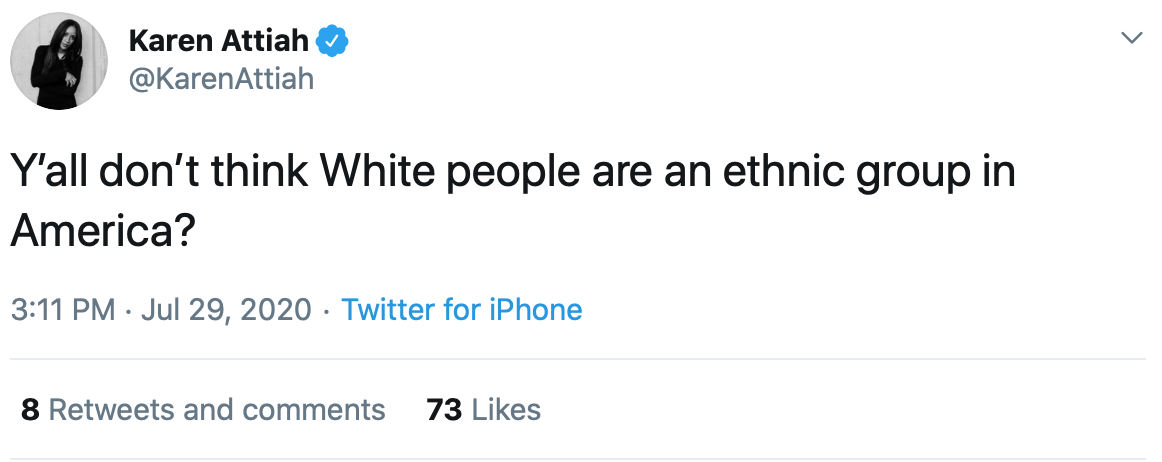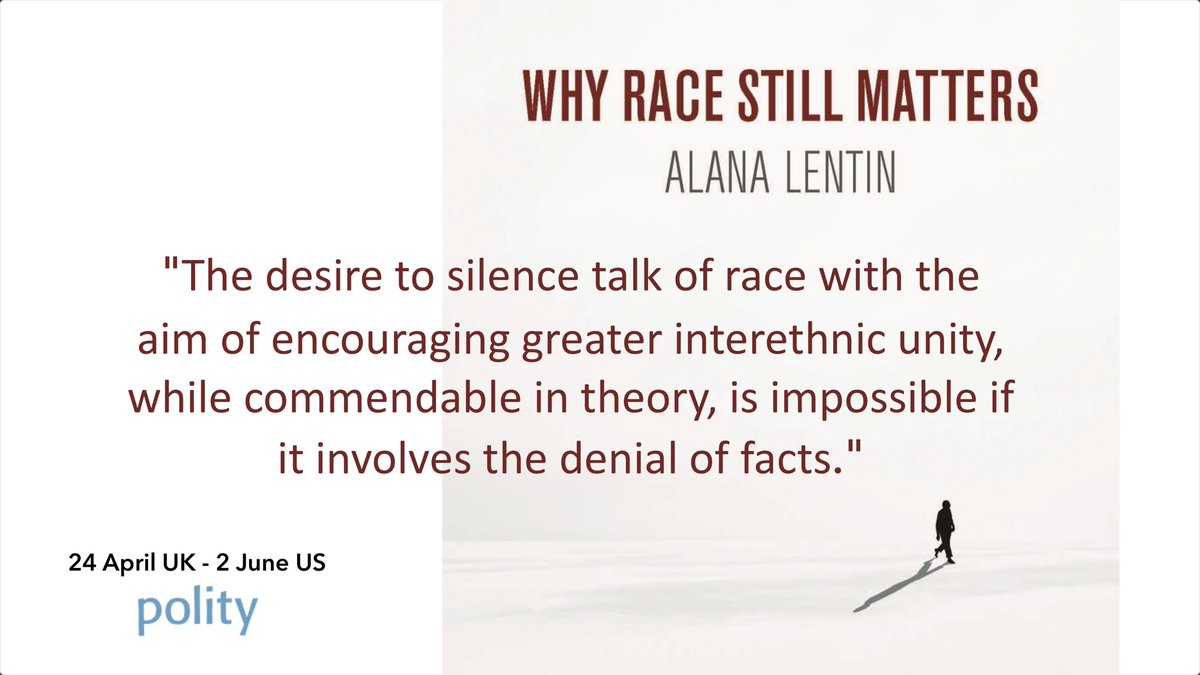It's dumb to be surprised by anything these days, but the fact that the Washington Post thinks whiteness is a "distinct cultural identity in the United States" means that one of the most important newspapers in America has embraced the logic of Richard Spencer & other neo-Nazis.
Just to be clear - even the Washington Post journo who tweeted out the change to the style guide then conflated "distinct cultural identity" with "an ethnic group," which doesn't fill me with confidence that they've thought this through.
Blackness and whiteness in America are, in historical terms, an oppressive duality based on a dichotomy which doesn't even work visually, let alone scientifically; but Black identities have followed a totally different trajectory to white ones.
Whiteness has for the most part of U.S. history, and especially more recent U.S. history, been seen as nationally normative - even invisible. It wasn't a "distinct cultural identity" but instead gained its power through the assumption that it was the default.
BLM is powered partly by the sense that in 'post-racial America' whiteness continued to be normative despite the glaring evidence of racism's persistence and even intensification, esp. from the perspective of residential and school segregation and police violence, inter alia
Historically speaking, capitalising Blackness makes sense to me for many reasons. Blackness encompasses both a collective identity for peoples from the African diaspora, and a specific point of connection to the history of the United States.
The centuries-long denial of liberty, nationality, civil rights, and other forms of equal standing to Black people by white people created forms of collective identity among members of the Black diaspora which IMO made 'Black' a proper noun.
This is partly to accept the reality of arbitrary and oppressive racial categorisation by white people; but it also recognises Blackness as the foundation of collective action, solidarity, resistance, & liberation. Those qualities bound Black people together, & still do
I appreciate the reductionistic and exhausting equation of Black identity with collective struggle; but it's absolutely the case that Black people have never been able to opt out of race in America, whereas white people always have.
That idea that Blackness is a centuries-old collectivity while whiteness has hidden in plain sight is one reason the equivalency here is such a disingenuous one; but it becomes dangerous when you remember that white nationalists would LOVE to get their hands on that capital W.
White supremacists insist on whiteness as a distinct cultural & even national grouping, overlooking centuries of history in which white people systematically brutalised Black & brown people while denying that Black & brown labour & land was foundational to U.S. or European wealth
Even if the history of the US/Europe had been lived out in ways that trumpeted 'whiteness' for centuries - as opposed to normalising/selectively erasing it - is there a white 'cultural identity' that doesn't remind us of racial oppression? Do white people want that going forward?
TBF that idea that white people have been sleepwalking into racial privilege and getting a pass from the horrors of their racial supremacism is why some scholars have supported capitalising white - check out this Nell Painter piece in the WaPost last week. https://www.washingtonpost.com/opinions/2020/07/22/why-white-should-be-capitalized/
And this one from Kwame Anthony Appiah last month. https://www.theatlantic.com/ideas/archive/2020/06/time-to-capitalize-blackand-white/613159/
But I disagree with Profs Painter & Appiah for two reasons: (1) I don't think the benefits of racial self-awareness among whites from capitalising 'White' will be major, while the costs of giving white nationalists validation could be enormous. Politically this is a bad trade.
(2) Blackness has a historical trajectory, rooted in collective struggle for equality/liberation, which whiteness doesn't share. Prof Painter's History of White People is a great book on the construction of whiteness but IMO the histories of 'white' and 'Black' are not equivalent
One of the many positives from the extraordinary struggles of recent months has been a mainstreaming of conversations about whiteness and privilege; but we need to remember that BLM interrupted a longer cultural march of 'white identity politics'. https://www.newyorker.com/news/q-and-a/a-political-scientist-defends-white-identity-politics-eric-kaufmann-whiteshift-book
I won't get into this here, but we have an active political campaign in the US and Europe which has moved from the far-right to the 'mainstream' right; it's trying to promote forms of 'white pride' which deny economic solidarity across racial lines and reboot white supremacy.
In some ways that political campaign itself interrupted a tendency by liberal (white) commentators to derail those who tried to address racial equality by accusing them of 'playing the race card' or 'making it about race'.
That strategy of denying the relevance of race is brilliantly dissected in @alanalentin's new book, but it's fascinating to think about how BLM has already accelerated the right's demands for new forms of white pride and identity politics.
With all this in view - and thinking about both politics and history - I believe @washingtonpost has made a big mistake here. It's certainly possible to have an honest disagreement about this, but when neo-Nazis think you're doing the right thing that is a definite red flag./

 Read on Twitter
Read on Twitter




